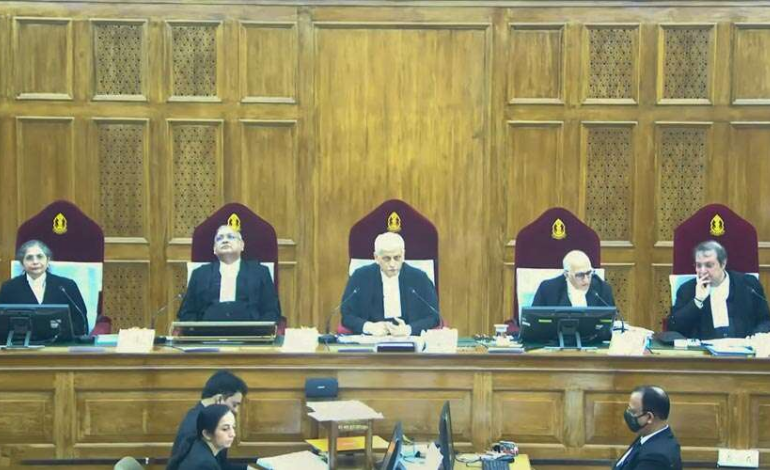
In a 3:2 split verdict on Monday, the Supreme Court upheld the 10 percent quota for economically weaker sections (EWS) in public employment and public and private educational institutions. The Supreme Court issued its decision on a bundle of pleas challenging the validity of the 103rd Constitutional Amendment, which grants EWS individuals a 10% reservation in admissions and government employment.
The decision in this case was made by a five-judge Constitution bench, led by Chief Justice Uday Umesh Lalit. The EWS amendment was invalidated by Justice Ravindra Bhat and CJI UU Lalit. The EWS amendment was affirmed by Justices Dinesh Maheshwari, Bela Trivedi, and JB Pardiwala. The 103rd amendment to the Constitution was affirmed by the majority bench.
The majority opinion upholding the EWS reservation was opposed by CJI Lalit. According to the CJI, the Constitution is violated by the 10% quota for EWS. The CJI stated, "I have concurred with the view taken by Justice Bhat. The decision stands at 3:2," said the CJI.
After hearing from a number of experienced lawyers during the marathon hearing that lasted six and a half days, the Supreme Court had reserved its decision on September 27 regarding the legal question of whether the EWS quota violated the basic principles of the Constitution.
Up to 40 petitions were heard by the highest court, and the majority of them, including the main one brought by "Janhit Abhiyan" in 2019, disputed the validity of the Constitution Amendment (103rd) Act 2019.
The Centre introduced the provision for EWS reservation in admissions and public services through the 103rd Constitutional Amendment Act, 2019.
The bill was passed by the Lok Sabha and the Rajya Sabha on January 8 and January 9, 2019, respectively. Ram Nath Kovind, the president at the time, subsequently signed the bill. The present 50% reservation for SCs, STs, and Other Backward Classes is in addition to the EWS quota (OBCs).
These questions were addressed by the five-member bench:
Is it lawful for the 103rd Amendment to permit reservations based only on economic criteria?
Is it legal for state governments to impose reservations in private institutions that do not receive any government funding under the 103rd Amendment?